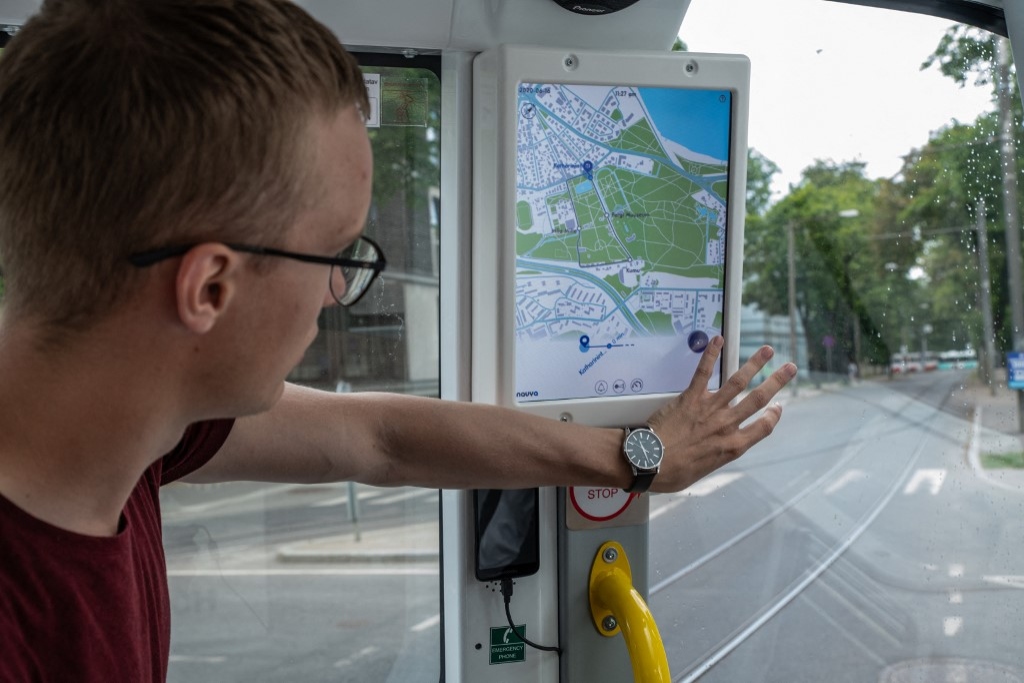
Travelling to a Spanish-speaking country? You might want to master these important Spanish phrases before you embark on your journey.
The good news is that Spanish is one of the easiest languages for English speakers to learn. This explains why there are almost 500 million Spanish speakers worldwide.
Used as the official language in 20 countries, Spanish is recognised by the United Nations and other international organisations like the African Union and the European Union.
While most are familiar with simple Spanish words like “Hola” or “Si,” there are many important Spanish phrases you should master to enhance your time abroad.
Whether it’s chatting up with the locals to make new friends or to find a hidden gem of a restaurant, learning these phrases shows respect for the local culture and language while helping you navigate day-to-day life easily.
Important Spanish phrases for greetings and responses
It’s hard to learn any language without learning the basics of how to greet people. The ability to correctly greet someone in Spanish will help you start conversations with locals.
Here’s how to start a conversation with a friendly greeting and some other important Spanish phrases that may come in handy.
1. Good morning
How to say it in Spanish: Buenos días
Pronunciation: BWAY-nos DEE-as
This phrase is an essential part of the language and is used as a formal way to greet people from sunrise until noon.
2. Good afternoon
How to say it in Spanish: Buenas tardes
Pronunciation: BWAY-nas TAR-des
When it hits the afternoon, you will need to switch to “buenas tardes”
3. Good evening and good night
How to say it in Spanish: Buenas noches
Pronunciation: BWAY-nas NOH-chays
Once the sun has set, you will hear locals saying “buenas noches” instead.
4. How are you?
How to say it in Spanish:
- ¿Cómo está usted? – Formal
- ¿Cómo estás? – Iinformal
- ¿Qué pasa? – What’s up?
Pronunciation: KOH-moh eh-STAH
Spanish is a language that takes different forms depending on formality. When having a conversation with someone older or of a higher position of power, like your parents or boss, you will need to use the “usted” form.
¿Cómo está usted? – This is the easiest way to say “How are you?” in a formal setting, such as when speaking to an elder, a superior at work, or someone you don’t know very well.
¿Cómo estás? – This phrase can be used with classmates or peers.
¿Qué pasa? – Even if you don’t know Spanish, you may be familiar with this phrase. It has made its way into English sang and is understood as “What’s up?”
5. Thank you
How to say it in Spanish: Gracias
Pronunciation: GRA-thee-as
As in every culture, it would be rude not to say thank you. Learning how to say it in Spanish may gain you extra brownie points, as it will show locals your genuine appreciation.

Master Spanish phrases that will help you make friends with locals. Source: AFP
6. Nice to meet you
How to say it in Spanish: Mucho gusto
Pronunciation: MOO-choh GOO-stoh
If you choose to pursue your studies in Spain, you’re bound to make Spanish-speaking friends. These friends may introduce you to other people at some point. Knowing how to say “nice to meet you” in Spanish can leave a good impression.
7. What’s your name?
How to say it in Spanish: Cómo te llamas?
Pronunciation: KOH-moh te ya-mas?
Meeting new people and introducing yourself can be intimidating – especially when you have to do it in a foreign language.
Learning how to ask someone for their name can help you communicate more easily in day-to-day conversations, make new friends, and practice your Spanish.
8. My name is…
How to say it in Spanish: Me llamar…
Pronunciation: May ya-mar
Before you ask someone for their name, you need to know how to introduce yourself. The main difference between introducing yourself in Spanish and English is the verb “llamar,” which means “to be called.”
In English, you would say, “I’m James,” but in Spanish, “Me llamar James” would translate to “I am called James.”
It sounds odd when you translate it, but we guarantee it doesn’t in Spanish.

Learn some important Spanish phrases that will help you if you are ever lost. Source: AFP
Important Spanish phrases when you are lost
When studying abroad in a foreign country, it is easy to get lost. Thankfully, Spanish people are known to be quite friendly. Here are some important Spanish phrases you can use to find your way around.
1. Excuse me
How to say it in Spanish: Perdón
Pronunciation: per-don
“Perdón” is the most common way to say “excuse me” in Spain. It can also be used for an apology or when you need to interrupt someone to ask a question. This is usually used in informal settings.
In a formal setting, you could use “disculpe” when interrupting someone or asking people to move in a crowd.
2. Do you speak English?
How to say it in Spanish: Habla inglés?
Pronunciation: Ab-la in-GLAYS
It’s easy to get overwhelmed when you’re still trying to learn a new language, so don’t be ashamed to ask for some help. And even if the person you’re speaking with doesn’t speak English, they’re more than likely to help you out in some way or form.
3. Are you able to help me?
How to say it in Spanish: ¿Me puedes ayudar?
Pronunciation: meh-pweh-dehs ah-yoo-dahr
There are two ways of asking for help:
- “¿Me puedes ayudar?” translates to “Are you able to help me?”
- “¿Me ayudas?” translates to “Can you help me?”

Avoid getting lost by mastering the Spanish phrases to ask for help. Source: AFP
4. I don’t understand
How to say it in Spanish: Yo no entiendo
Pronunciation: yo no en-tee-EN-doh
Learning a new language can be intimidating, so don’t be afraid to use this phrase when you don’t understand something in Spanish and need help.
5. Where is the bank?
How to say it in Spanish: Dónde está el banco?
Pronunciation: DON-day es-tah el BAN-koh?
Knowing where the banks are is helpful, especially if you ever need urgent help with your finances, you’d want to go to a trustworthy source.
6. Where is the bathroom?
How to say it in Spanish: Dónde está el baño?
Pronunciation: DON-day es-tah el BAH-nyo?
We all need to use the bathroom, so it’s important to know how to ask for it in Spanish.
7. Where can I get a taxi?
How to say it in Spanish: Dónde puedo encontrar un taxi?
Pronunciation: DON-day pway-doh en-kon-trar oon tax
While most transport systems around the world are easy enough to navigate (thank you, Google Maps), there are certain times when you’re lugging your baggage around and desperately need to call a taxi.

Learning how to order in Spanish will make it easy to eat in restaurants and indulge in local cuisines. Source: AFP
Important Spanish phrases for ordering food
Food is a big part of Spanish culture and travel in general, so picking up these important Spanish phrases to use at a restaurant will definitely come in handy at some point in your day.
1. How much is it?
How to say it in Spanish: Cuánto cuesta?
Pronunciation: KWAN-to KWES-ta?
As a student on a budget, it is important to know how much something costs so that you can organise your money and purchase something within your means.
2. What do you recommend?
How to say it in Spanish: Qué me recomienda?
Pronunciation: Kay may re-kom-ee-en-dah?
As an international student, you may not be familiar with the food, so knowing how to ask the waiters for their recommendations will ensure you get the best meal.
3. I am allergic to…
How to say it in Spanish: Soy alérgico/a
Pronunciation: soy-a-lér-gi-co
Those with food allergies will always have to practice extra caution when travelling abroad. One of the most important phrases to learn will be informing any wait staff about your allergies so you can avoid a trip to the hospital.
4. The bill, please
How to say it in Spanish: La cuenta, por favor
Pronunciation: la KWEN-ta por fa-vor
In Spanish, the phrase “Check, please!” is commonly translated as “La cuenta, por favor!”
5. I’m a vegetarian
How to say it in Spanish: Soy vegetariano/a
Pronunciation: soy ve-he-tah-ree-ah-noh/nah
Being new to the language and country would mean that you may not be familiar with certain dishes and their ingredients. Hence, being able to inform your food servers of your food preferences could make your entire trip a whole lot more comfortable
Note: Every Spanish noun has a specific gender, either masculine or feminine. In this case, males would say “Soy vegetariano,” while females would say “Soy vegetariana.”
6. A table for…
How to say it in Spanish: Una mesa para
Pronunciation: Oo-na may-sah pah-rah
Whether you’re solo-travelling or visiting the country with a group of friends, being able to reserve a table at the restaurant you’re eyeing will definitely make your trip a little better.
Simply tack on the number of people you want for the reservation at the end of the phrase. That’ll be “uno” for one, “dos” for two, “tres” for three, and so forth.

Learning the appropriate Spanish phrases for celebrations can help you make friends and form bonds. Source: AFP
Important Spanish phrases for celebrations
There are a number of common expressions that are used regularly to denote special circumstances or for special occasions.
1. Happy birthday
How to say it in Spanish: ¡Feliz cumpleaños!
Pronunciation: fe-LEES kump-lay-AN-yos
Have you ever sat in a restaurant that burst into a “Happy Birthday” song, and the recipient is sat at the table next to yours? Knowing how to wish someone, even a stranger, a happy birthday in their native language will make anyone feel extra special on their day.
2. I love you
How to say it in Spanish: Te amo
Pronunciation: te a-m-o
There are actually two ways to say “I love you” in Spanish:
- “te amo” is used when you want to declare your love to someone. This term is usually used with partners as it has romantic connotations.
- “te quiero” is used more casually and translates to “I want you.” This is the more common way to express your love to family and friends. A Reddit user shares that the “want” part would have more of a meaning of “I want the best of you.”
3. Bon appetit
How to say it in Spanish: ¡Buen provecho!
Pronunciation: bwu-EN pro-BE-choh
Originally a French word, bon appetit has made its way into the English language. If you are looking for a way to say this in Spanish, “Buen provecho” is most commonly used. It means, “May you benefit from this meal.”
4. Take care
How to say it in Spanish: ¡Cuídate!
Pronunciation: kw-EE-dah-tay
In Spain, greetings are important, so knowing the correct greetings for different situations shows respect and understanding of the culture.










